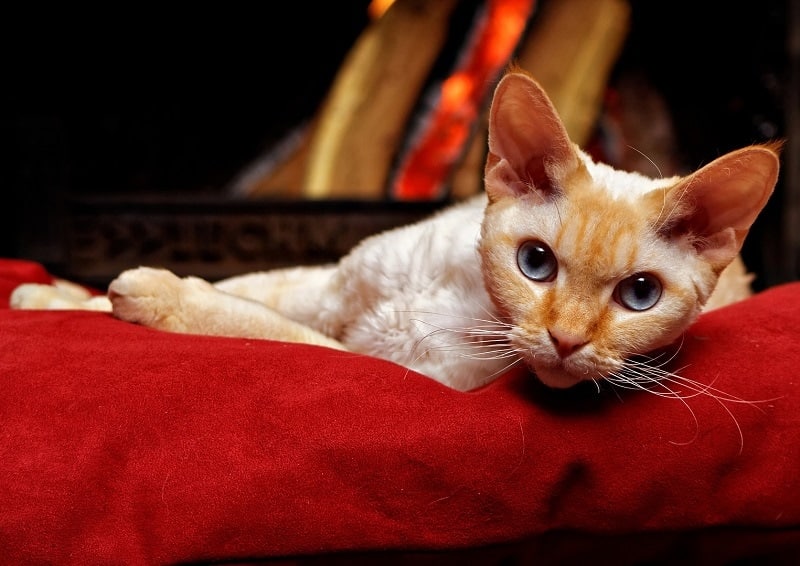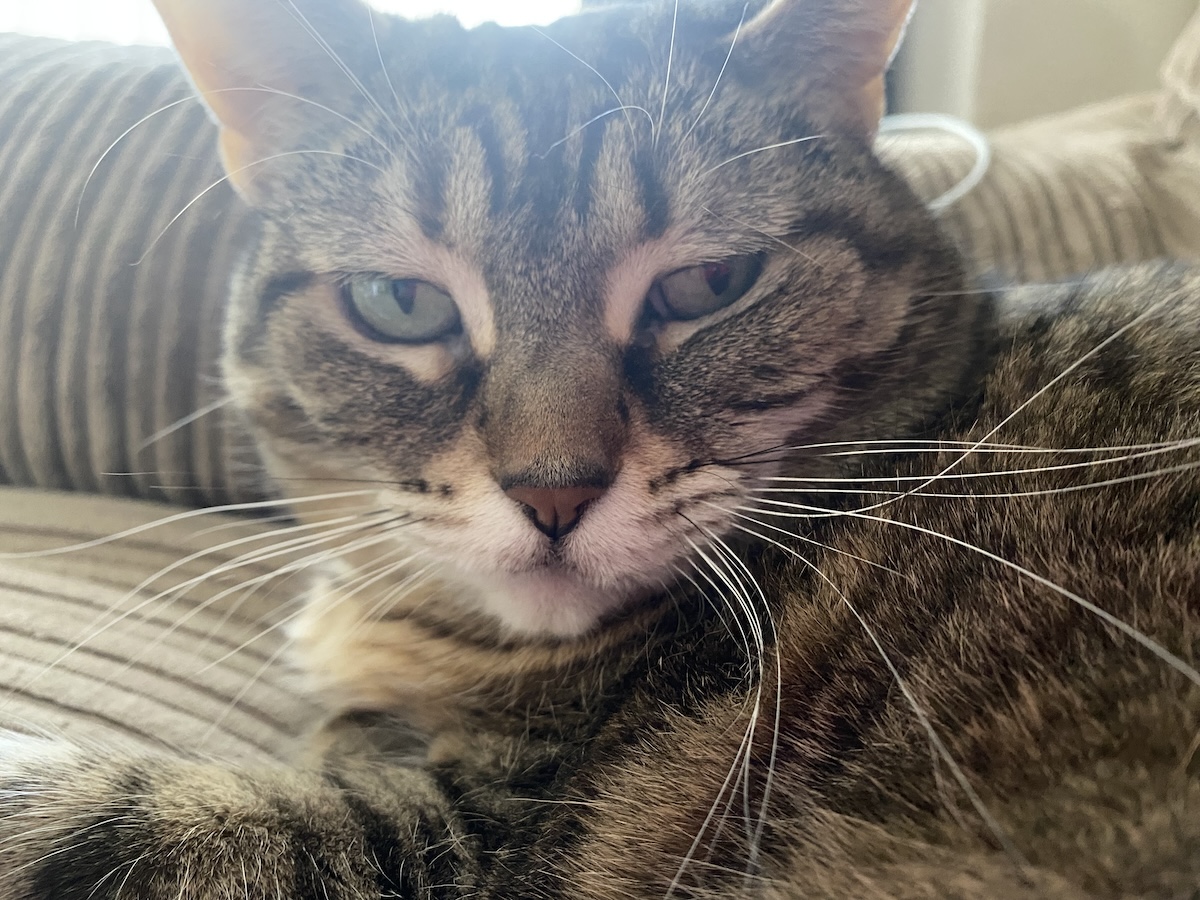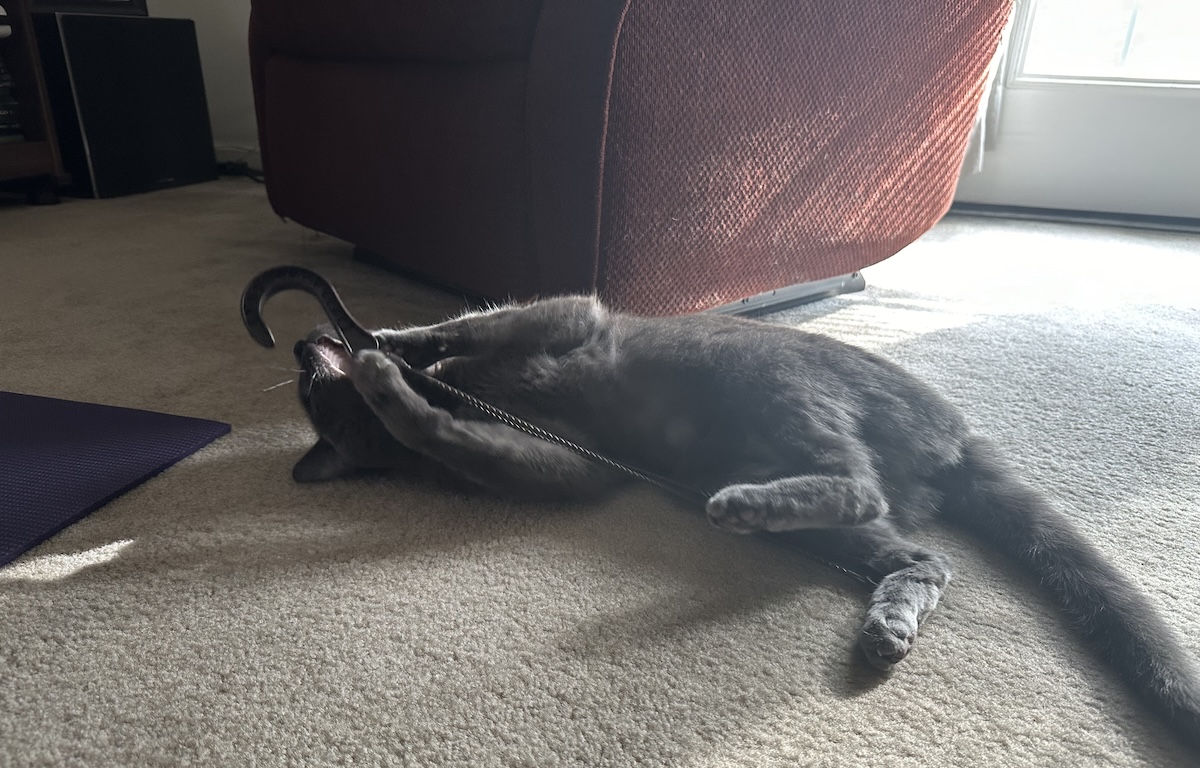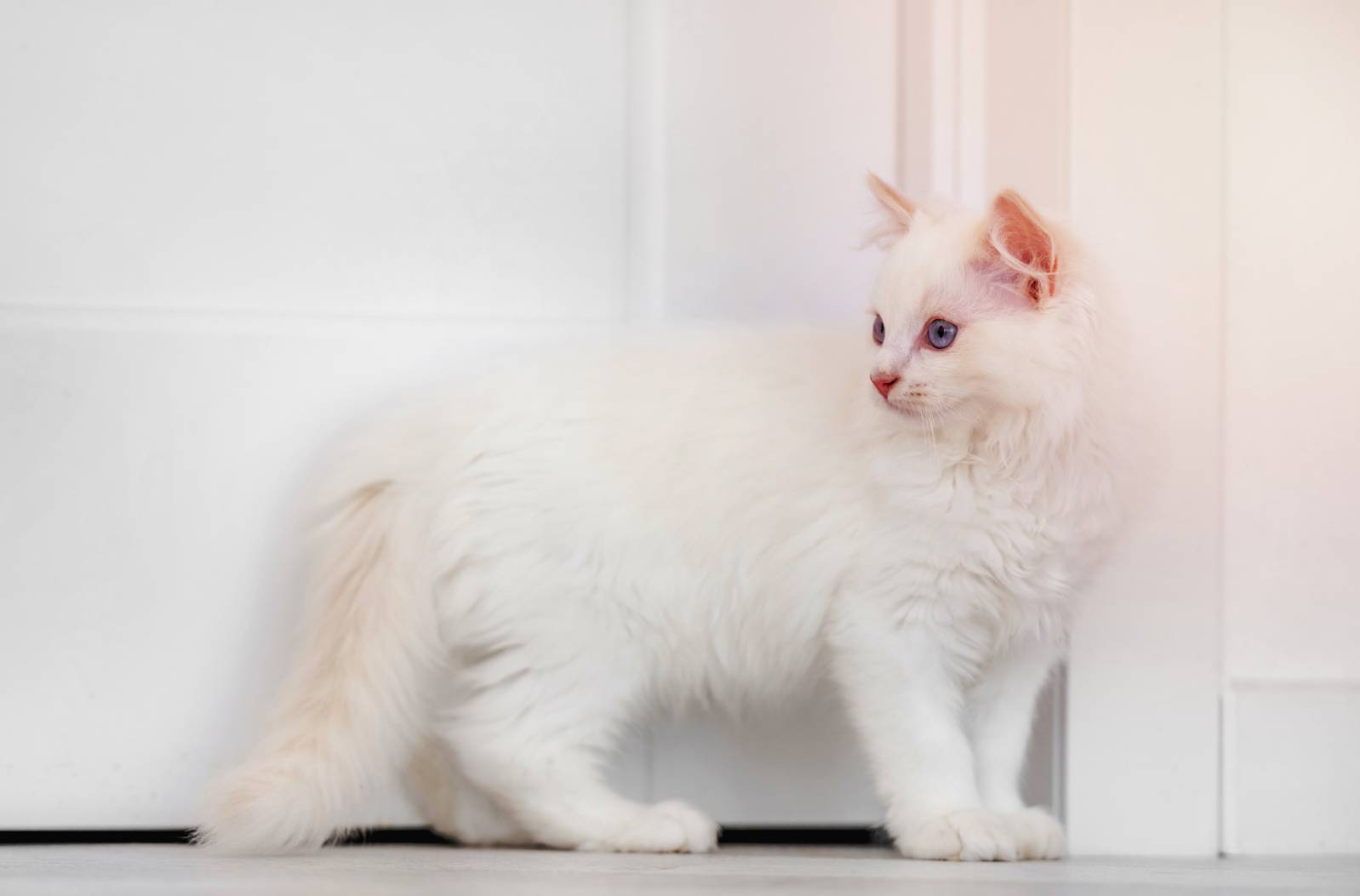Click to Skip Ahead
Breed Overview
Height:
10–14 inches
Weight:
5–10 pounds
Lifespan:
12–15 years
Colors:
Blue, black, red, silver, chocolate
Suitable for:
Large families, homebodies
Temperament:
Loyal, affectionate, stubborn, loyal
The Oregon Rex is an extinct breed of cat that was in America between the 1940s and 1970s. It began in 1944 after the discovery of a cat with short, curly fur in Oregon. The first documents of this breed date from 1955, and they quickly became popular. It gets its short curly hair from a genetic mutation that is very popular in all the Rex breeds. It has a small, elongated body and a wedge-shaped head. Breeders began to mix all of the Rex breeds, and after a short time, it brought about the Oregon Rex breed’s demise.
Keep reading while we take an in-depth look at the Oregon Rex to learn more fascinating facts about the short-lived breed.
Oregon Rex Characteristics
Oregon Rex Kittens
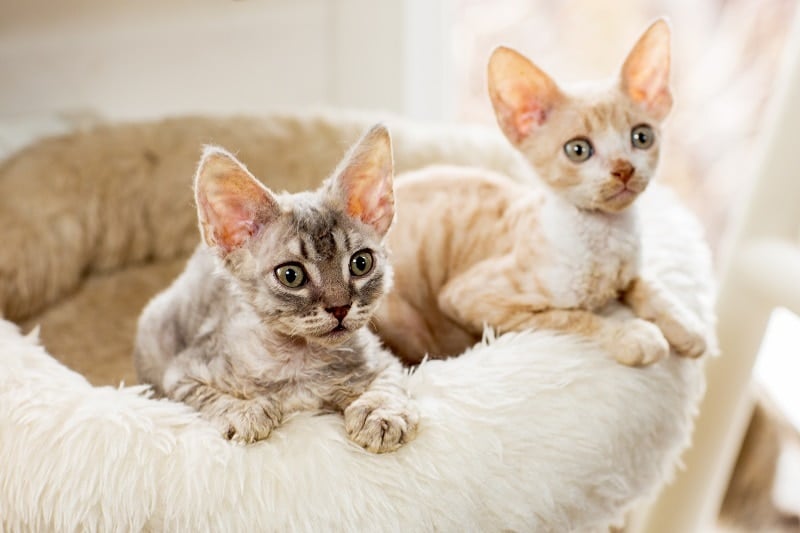
Unfortunately, since the breed is extinct, there is no way to purchase one of these kittens if you’re interested in owning one. However, there are other Rex breeds out there that look similar, such as the Cornish Rex, and Devon Rex, although you may have to go through a breeder to find one.
If you seek out a breeder for a different Rex breed, it is important to do your research. A reputable breeder will have plenty of information available to you about the breed you’ve chosen and can answer any questions you may have. They should also be able to provide vet records to ensure that the kitten is healthy. Any breeder that can’t provide this information should be avoided,
3 Little-Known Facts About Oregon Rex
1. The last Oregon Rex is thought to have died in 1972.
It is unfortunate that Oregon Rexes are no longer available.
2. If you are interested in owning an Oregon Rex, the Devon Rex and the Cornish Rex are very similar.
Although there are no more Oregon Rexes, there are other breeds that look similar to them. The Devon Rex and the Cornish Rex embody many of the Oregon Rexes’ physical features.
3. Mixing the Oregon Rex with the Cornish Rex could result in a cat with a non-curly coat.
However, since the Oregon Rex no longer exists, we can only surmise what their coats would be like.
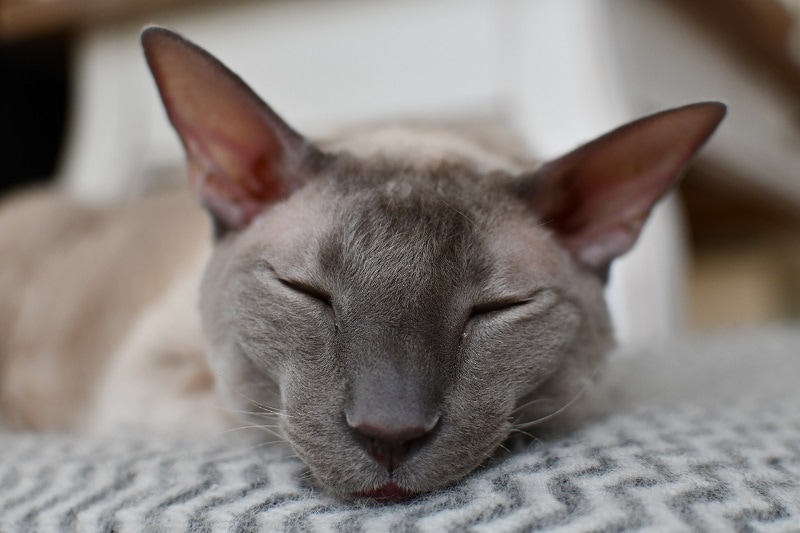
Temperament & Intelligence of the Oregon Rex
The Oregon Rex is a friendly breed that bonds quickly with family members. It’s playful but can also be headstrong, so you will need to put your foot down early on, or it might try to become master of the house. Like the other Rex breeds, the Oregon Rex does not like to be left alone and could get into mischief if you spend too much time away from home.
The Oregon Rex is an intelligent breed that quickly learns to use the litterbox and rarely breaks that training unless it’s angry you are gone too long. It will also learn your routine and expect certain things, like dinner and treats, at specific times each day.
Are These Cats Good for Families?
Yes, the Oregon Rex is a great family pet and enjoys being close to family members. Since they don’t like to be left alone, having a large family increases the chance that there will be someone with it at all times. It’s also friendly and likes attention and playing games, and since its curly hair is close to the body, there is less chance that children will pull its hair.
Does This Breed Get Along With Other Pets?
Yes, the Oregon Rex gets along will other cat breeds and most dogs. It rarely becomes territorial, especially if you socialize it at a young age, but it may still chase after rodents and other small animals.
Things to Know When Owning an Oregon Rex:
This section will go over some of the important things to consider before purchasing an Oregon Rex.
Food & Diet Requirements 
The Oregon Rex did not have any special requirements. It would prefer a meal high in protein, with real meat like chicken, beef, salmon, or turkey listed as its first ingredient. Cats are carnivores, so they don’t require any carbohydrates, and simple carbs like corn, wheat, or soy can cause your cat to gain weight. These ingredients can also cause your cat to have an upset stomach, leading to diarrhea and constipation. It’s also important to avoid harmful chemical preservatives and artificial dyes that can also lead to health problems.
Exercise
Your Oregon Rex would need between 30 minutes and 1 hour of activity each day to stay healthy. Tossing a small ball or using a laser pointer are great ways to engage your cat in the activity it needs without expending a lot of energy yourself.
Training
The Oregon Rex is easy to train to use a litter box, and it also learns routines, so it will know when it’s dinner time and if you are late for work. However, it also has a stubborn side that will not sit still for very long to learn any commands
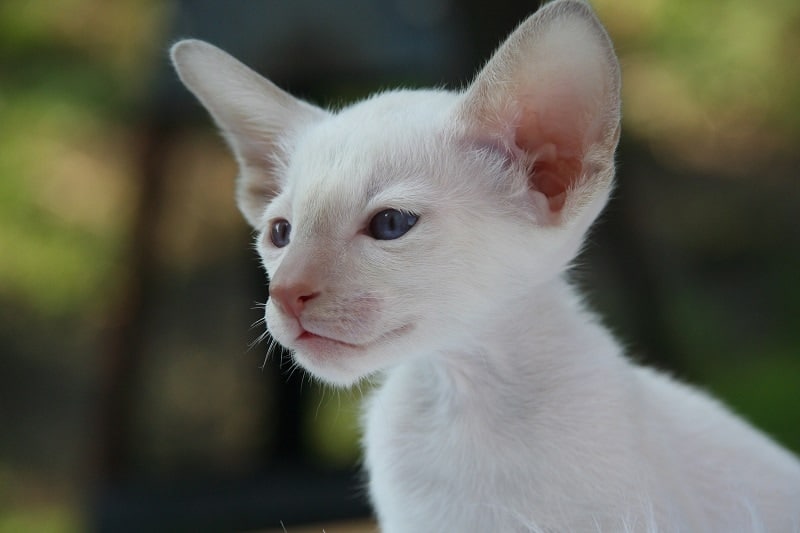
Grooming ✂️
The short, curly hair of your Oregon Rex is extremely easy to maintain and only requires occasional brushing. It’s important to brush their teeth as often as possible with a cat-friendly toothbrush, and you might also need to cut the nails if it’s scratching up your furniture.
Health and Conditions
The Oregon Rex was a healthy cat with a long lifespan. However, there are still a few health problems to consider.
- Sunburns
- Diarrhea
- Hypertrophic Cardiomyopathy
- Patellar Luxation
Minor Conditions
- Sunburns – Sunburns are a serious concern for the Oregon Rex and any other breed with short or no hair. The sun can easily penetrate the fur and burn the skin, even if they are only sitting in the window. Not only are sunburns painful like they are for humans, but they can also lead to skin cancer. Cats with light-colored fur are the most susceptible, and symptoms often appear on the ears and face. Symptoms include redness, scratch, and scaly skin.
- Diarrhea – Because cats are carnivores with a sensitive digestive system, they tend to get diarrhea quite often. It can also be a sign of a bacterial infection or a parasite like a tapeworm. Diarrhea can quickly dehydrate your Oregon Rex and will prevent them from getting the nutrients from their food. A well-balanced diet with plenty of real meat like chick or turkey is best. Avoid foods with corn, soy, chemical preservatives, and artificial dyes to reduce the risk of getting it from food. If your cat has diarrhea for more than 24 hours, we recommend taking them to the vet to rule out other problems and get some medication.
Serious Conditions
- Hypertrophic Cardiomyopathy – Hypertrophic cardiomyopathy is a popular form of heart disease in cats. It affects the heart’s ability to pump blood, which causes it to work harder. Hypertrophic cardiomyopathy symptoms include loss of appetite, lethargy, weak pulse, difficulty breathing, and abnormal heart sounds. In some cases, medications can help ease the symptoms. Your cat might also need a sodium-restricted diet.
- Patellar Luxation – Patellar luxation is a condition in cats that affects the knee. The patellar ligament that keeps the kneecap in place stretches and allows it to slip. As time passes, the cap slips further and more often, making it difficult for your cat to walk or put weight on the leg. Symptoms include skipping, lameness, difficulty in jumping and walking with the leg out to the side, which can help put it back in place. Surgery can help repair the damage if it has gotten bad enough.
Male vs. Female
Both males and females have a large head and broad chest. However, males will be noticeably larger and heavier than females. The males will have a medium size bone structure, while the females are considered light. Both cats’ personalities are identical, with no discernible difference between the males and females, especially after getting them fixed.
Final Thoughts
The Oregon Rex was an attractive breed that was well suited to family life. It had very few health problems and a long-life span that made it ideal for first-time pet owners. Unfortunately, mixing the Oregon Rex with other Rex breeds caused it to be extinct as a stand-alone breed. Still, if you want to experience what life would be like with these pets, the Cornish Rex and Devon Rex are similar have nearly all the same traits and appearance.
We hope you have enjoyed reading over our in-depth look at this extinct cat breed, and it has answered any questions you had. If we have convinced you to check out other Rex breeds, like the Cornish Rex and Devon Rex, please share this guide to the Oregon Rex on Facebook and Twitter.
Featured Image Credit: zkittler, Pixabay

